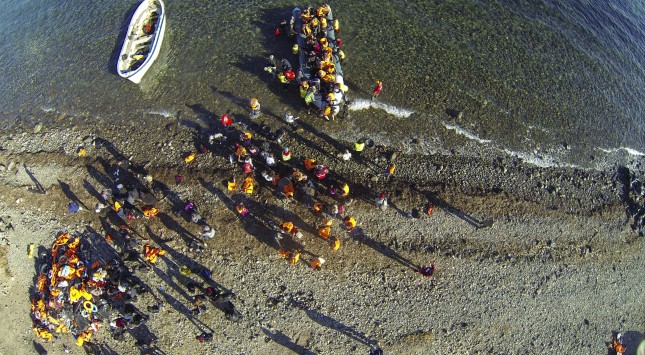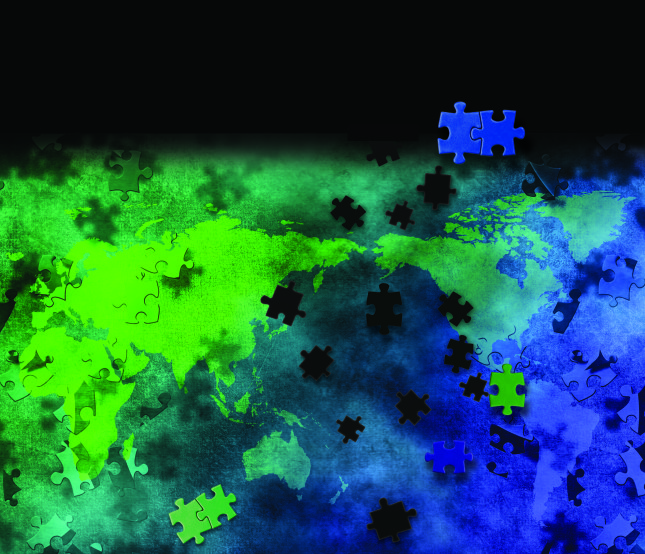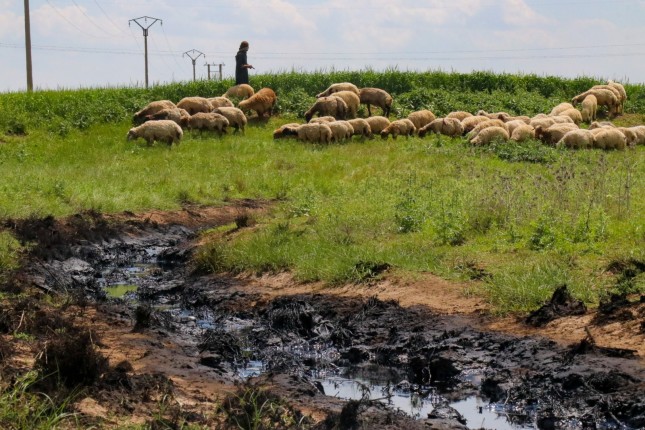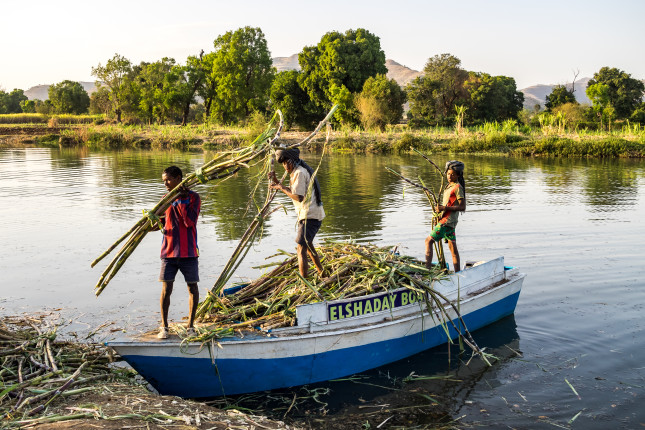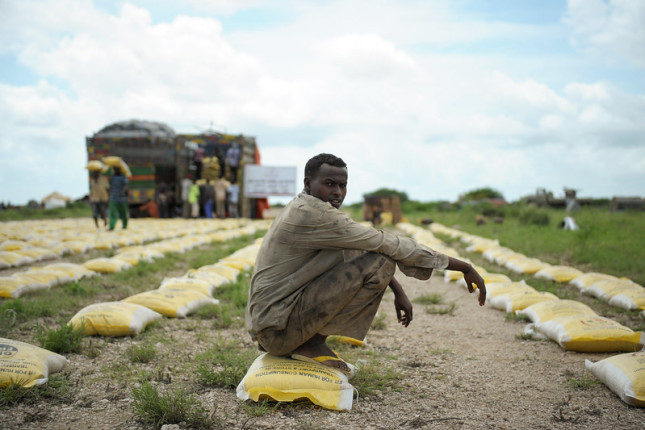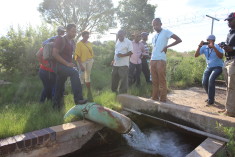-
Largest Polar Expedition Ever Seeks to Explain Shrinking Arctic Sea Ice
›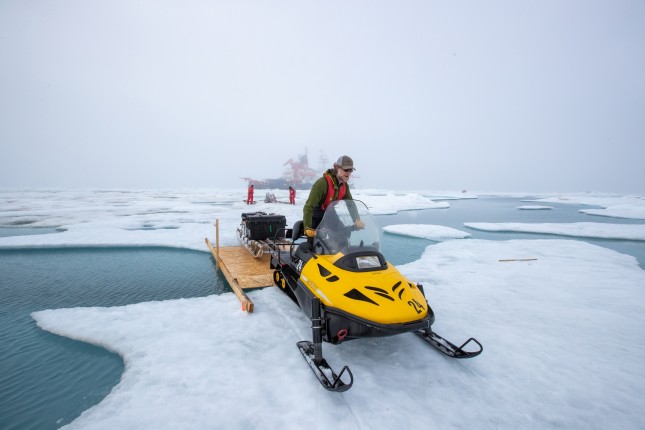
“If you’re a sea ice person, MOSAiC is the kind of experiment that you just live for,” said Don Perovich, a Dartmouth College researcher with the Multidisciplinary drifting Observatory for the Study of Arctic Climate. “It’s the kind of experiment you dream about. It’s an opportunity to spend a whole year on the ice, just watching how a floe evolves over time.” He spoke at a recent event sponsored by IARPC Collaborations, an Interagency Arctic Research Policy Committee (IARPC) member space where scientists and others involved in Arctic research share knowledge and resources. The researchers on the expedition, said Perovich, aimed to collect data that would shed light on the causes and consequences of the evolving and diminished Arctic sea ice cover. MOSAiC’s mission was to facilitate a breakthrough in understanding the Arctic climate system and improve the world’s climate and weather forecasting models.
-
Climate Change is a Security Issue: An Interview with Geoff Dabelko
›
Climate change is a threat multiplier; it is an underlying and exacerbating factor that makes things worse at a level that all actors, including security actors, need to pay attention to, said Geoff Dabelko, Professor and Associate Dean at the George V. Voinovich School of Leadership and Public Affairs at Ohio University and Senior Advisor to the Wilson Center’s Environmental Change and Security Program. He spoke in a recent interview about climate change and security as part of CimpaticoTV’s Climate Adaptation Channel.
-
Climate Superpowers Could Alter Foreign Policy Landscape
›
“Climate change has the potential to be a very important confidence-building measure between the United States and China,” said Sharon Burke, Senior Advisor of the International Security Program and Resource Security Program at New America. “Because no matter what else is happening in our relationship, we can succeed together on climate change.” She spoke at the launch for a project co-led by the Wilson Center’s Environmental Change & Security Program and adelphi, “21st Century Diplomacy: Foreign Policy is Climate Policy.” Hosted as part of the Berlin Climate and Security Conference, the discussion focused on the “climate superpowers” section of the project.
-
21st Century Diplomacy: Foreign Policy is Climate Policy (Report & Project Launch)
›
Climate change will upend the 21st century world order. It will redefine how we live and work, and change the systems of production, trade, economics, and finance. Even now, in the midst of a global pandemic, it is clear that climate change will be the defining issue of this century. In fact, COVID-19 has only underscored the inadequacy of our responses to global crises and heightened the urgency of this call to action. 21st century diplomacy will have to raise climate ambition, shape the transformative systems change needed, and promote and facilitate new modes of multilateral collaboration.
-
Where the Oil Runs Deep, Water Turns Foul
›
When Farhad Ahma returned to his native country last year on a work trip, his first thought was of his small daughter back home. The air around him was so thick with pollution, he couldn’t imagine she would survive the climate in this region of northeastern Syria. Ahma himself struggled to breathe almost as soon as he arrived, nauseated by the heavy smell within a couple hours. He was born and raised nearby, in a city called Qamishli, but he had lived in Berlin for some time now. Returning was a shock to his system.
-
Debt on the Nile? Sharing Rivers on the African Continent
›
Trouble is brewing on the Nile. For years, use of the river was mainly about the needs of Egypt, by far the largest and most powerful riparian country in the basin. But since the Arab Spring of 2011, the situation has changed considerably. Egypt’s troubles over the last decade have weakened its ability to project power southward, while upper riparian states—Ethiopia in particular—have enjoyed a period of economic growth and relative stability, which has led them to look at the great river as an important national resource. Tensions have come to a head since Ethiopia announced the construction of the Grand Ethiopian Renaissance Dam (GERD), construction of which is now almost complete. Once full, the resulting reservoir will be larger than the whole of Greater London. Much of the water it holds would have previously reached Sudan and Egypt largely unhindered.
-
To Understand How Disasters Relate to Conflict and Peace, Reframe the Starting Point
›
Is the world doomed to be ever-more tumultuous? For years, headlines have suggested that climate change causes or acts as a threat multiplier for violent conflicts. For example, climate change-influenced drought has been labeled a cause of the Syrian conflict and the war in Darfur. Natural hazard-related disasters (“disasters”) like earthquakes that are not related to climate change have also been connected to an increased risk of violent social conflict and political instability. The narratives are often that disasters displace people who then put pressure on already-strained resources and infrastructure in receiving areas, and that disaster-stricken people fight over limited resources in their struggle for survival.
-
Using Big Data Analytics for Transboundary Water Management
›Guest Contributor // Water Security for a Resilient World // July 28, 2020 // By Clara Bocchino & Knowles AdkissonSouthern Africa has experienced drought-flood cycles for the past decade that strain the ability of any country to properly manage water resources. This dynamic is exacerbated by human drivers such as the heavy reliance of sectors such as mining and agriculture on groundwater and surface water, as well as subsistence agriculture in rural areas along rivers. These factors have progressively depleted natural freshwater systems and contributed to an accumulation of sediment in river systems. In a region where two or more countries share many of the groundwater and surface resources, water security cuts across the socioeconomic divide and is both a rural and urban issue. For example, the City of Cape Town had to heavily ration all water uses in 2017 and 2018, as its dams were drying up.
New technology, however, brings new opportunities for improved water governance. In Southern Africa, university researchers and government agencies are joining with international development groups and the private sector to explore how big data analytics can improve the management of aquifers that are shared by two or more countries.
Showing posts from category environmental security.


